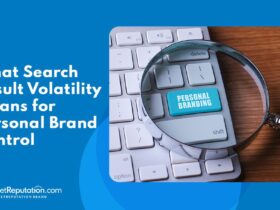Online defamation and narcissist abuse are big problems today. They cause a lot of damage to businesses and people’s reputations. Internet libel, or online slander, can ruin lives quickly with anonymous attacks.
Finding legal help is hard because lawsuits are expensive and take a long time. They also take a big toll on your emotions.
Public Wi-Fi and easy-to-use anonymous accounts make things worse. But, there are ways to get help if you’ve been hurt online. Rexxfield was started by Michael Roberts, who knows a lot about fighting online defamation. They use tech, psychology, law, and PR to help their clients.
Key Takeaways
- Online defamation and narcissist abuse cause billions in damages to business goodwill, personal reputation, and emotional well-being.
- Civil court action against online defamation is often expensive, lengthy, and emotionally draining for victims.
- Rexxfield, a specialized agency, offers a comprehensive solution to combat online defamation and support victims.
- Proper documentation and legal guidance are essential for victims to protect their reputation and pursue justice.
- Reporting prohibited content to social media platforms and seeking professional assistance are crucial steps for victims.
Understanding Online Defamation and Its Impact
Online defamation is a serious problem that can hurt a person’s or business’s reputation a lot. It’s when false statements are shared online, causing harm. Unlike free speech, online defamation isn’t protected and can lead to big emotional and professional problems.
Types of Online Defamation
There are different kinds of online defamation. Libel is when false things are written, and slander is when they’re spoken. These false claims can appear on social media, review sites, and more. They spread fast and can reach many people.
Emotional and Professional Consequences
Being defamed online can really hurt someone’s feelings, causing stress and sadness. It can also ruin a career or business. False claims can make people lose trust and opportunities. Research shows that people with certain personality traits are more likely to make these false claims.
Statistics and Prevalence
About 6.2% of Americans have a personality disorder that makes them more likely to make false accusations. Legal cases involving these false claims are more likely to wrongly convict someone. This shows why we need good online reputation management and digital brand safety to protect everyone.
“Online defamation can destroy careers and businesses, as false claims can destroy trust, credibility, and opportunities.”
The Psychology of Narcissistic Abusers Online
Online defamation and digital harassment often involve narcissistic abusers. They have a grandiose sense of self and lack empathy. They use false accusations to control and manipulate others.
Narcissists mix truth and lies, making it hard to prove their claims wrong. They find people who agree with them, isolating their victims. They believe they are superior and entitled to dominate, even through online manipulation and digital harassment.
They show no remorse and exploit others without hesitation. False accusations are their tool for control, revenge, and validation. These narcissistic abuse tactics can severely harm a person’s emotions and reputation.
| Narcissistic Abuse Tactics | Impact on Victims |
|---|---|
|
|
To fight back against narcissistic abusers online, victims need to educate themselves and seek help. Understanding their tactics and using effective strategies can help victims take back their online presence.
“Narcissists often weaponize false accusations to manipulate and control their victims, blending truth with falsehood to assert dominance.”
Support for Defamation Victims
In today’s world, online defamation is a big worry for many. It can hit hard, whether you’re sharing your story of sexual assault or facing false claims at work. But, there are steps you can take and help available to guide you through it.
Immediate Response Strategies
When faced with online defamation, it’s key not to fight back. This can make things worse. Instead, document everything and collect proof for your case. Talk to trusted experts like mental health professionals or reputation managers for advice.
At times, a calm, fact-based response might work. But think it over to avoid making things worse.
Professional Support Services
Defamation support services can be a big help. Companies like Rexxfield know how to deal with online attacks. They offer custom solutions for your situation.
Legal Resources and Options
If the situation is serious, you might need to go to court. This could mean sending formal warnings or seeking legal help for online abuse. But, think carefully about this step. It can be costly and emotionally draining.
Handling online defamation and crisis management is tough. But, with the right help and plan, you can fight back and protect your reputation.
Documenting and Handling False Accusations
When faced with false accusations, the saying “the truth will set you free” is very powerful. But, to find freedom, you need to document everything carefully and defend yourself well. It’s key to gather evidence when dealing with defamation, false allegations, or narcissistic abuse to protect your reputation.
Start by documenting every interaction and evidence that proves you’re not guilty. Screenshots, records of communications, and any supporting information are very helpful. Digital forensics can also help uncover false allegations and keep digital evidence safe.
It’s important to stay calm and not react emotionally to false accusations. Narcissistic abusers often use your reactions against you. By understanding the mix of truth and lies in their accusations, you can counter them effectively.
- Gather and document all evidence that proves you’re not guilty.
- Use professional digital forensics services if needed to find out more about the allegations.
- Stay calm when responding, as emotional reactions can be used against you.
- Identify the truth and lies in the accusations to challenge them effectively.
| Type of False Accusation | Prevalence |
|---|---|
| DNA-based exonerations involving false accusations | Approximately 15% |
| Innocent people wrongfully convicted due to false accusations | 54% |
| False accusations of domestic violence | Around 10% of reported cases |
| False accusations of sexual assault | Approximately 5% of reported cases |
| False accusations of theft or property crimes | 8%-10% of reported cases |
| False allegations of drug-related offenses | Around 20% of reported cases |
False accusations can be very damaging, causing anxiety, depression, and PTSD. They can also make it hard to find a job, get housing, or win custody of children. It’s important to gather evidence and defend yourself well to overcome these challenges and clear your name.
“The truth will set you free, but first it will piss you off.” – Gloria Steinem
Handling false accusations needs a careful plan. Use digital forensics, stay calm, and challenge the accusations well. This way, you can defend yourself and regain your reputation. Remember, finding justice takes hard work, resilience, and a strong commitment to the truth.
Recovery and Healing Strategies
Getting over online defamation or narcissistic abuse is tough but vital. Norm Therapy® is a special help for those who have been abused. It uses unique methods to help people understand and heal from their experiences.
Therapeutic Approaches
Norm Therapy® is a new way to help abuse survivors. It meets their emotional and psychological needs. This treatment helps people find themselves again, become stronger, and learn how to deal with online attacks.
Building Support Networks
Having a strong support network is key to getting better. Connecting with others who have gone through similar things, joining online groups, and talking to mental health experts are all important. Sharing stories and getting support from peers is a big part of healing.
Self-Care Practices
- Maintaining physical health through proper nutrition, exercise, and rest
- Engaging in stress-reduction activities like meditation, yoga, or creative hobbies
- Setting healthy boundaries and prioritizing self-care practices
Recovery takes time and effort. It’s about finding yourself again and becoming stronger against future attacks. With the right therapy, support, and self-care, people can beat the effects of online defamation or narcissistic abuse.
“The journey of healing is not a linear one, but rather a winding path that requires deep self-reflection, compassion, and the support of a strong network. With time and dedication, survivors can reclaim their power and write a new chapter of their lives.”
Conclusion
Recovering from online reputation recovery and narcissistic abuse is tough but doable. Victims can get back their reputation and emotional health. This is through legal steps, professional help, and personal digital strength.
Services like Rexxfield and Norm Therapy® help with this. They offer special help for those hurt by false online claims.
The journey to overcome victimhood and become empowered is long. It needs constant effort, support, and smart planning. Knowing how online defamation and narcissistic tactics work helps victims fight back.
They can then start to rebuild their online image. The fight to regain one’s place online is hard. But, the will to do so can lead to a better future.
Victims can get through this by getting professional advice, using legal tools, and building personal strength. It’s not simple, but with the right help and plans, they can win back their reputation and power. The journey ahead is tough, but with the right support, they can move forward with confidence and purpose.
FAQ
What is the impact of online defamation and narcissist abuse?
Online defamation and narcissist abuse can harm businesses and personal lives. Internet libel can destroy careers. Legal fights are costly and emotionally tough.
What are the types of online defamation?
Online defamation includes false claims that harm reputations. It’s not protected by the First Amendment. It can lead to anxiety, stress, and depression, and can ruin careers.
What is the prevalence of narcissistic personality disorder (NPD) and its relation to false allegations?
About 6.2% of Americans have narcissistic personality disorder (NPD). People with NPD are more likely to make false accusations. In workplaces, 30% of false claims come from those with NPD. Legal cases with NPD individuals are 25% more likely to wrongly convict.
How do narcissists use false accusations to manipulate and control?
Narcissists use false accusations to control and manipulate. They mix truth with lies, making it hard to prove anything. They lack empathy and exploit others without remorse.
What are the immediate response strategies for victims of online defamation?
Don’t retaliate, as it feeds the narcissist. Document everything and gather evidence. Seek trusted opinions and consider public refutations. Services like Rexxfield can help fight online defamation.
What legal resources are available for victims of online defamation?
Legal options include giving notice to the accuser and publishers. You can also seek court orders if the case is strong and affordable.
How can victims effectively document and handle false accusations?
Documenting false accusations is key for defense and legal action. Keep records and evidence. Stay calm when responding to accusations. Professional digital forensics services can help.
What therapeutic approaches and support networks can help victims recover?
Therapy like Norm Therapy® helps abuse survivors. Building support networks is vital for recovery. Self-care, including physical health and stress reduction, is crucial.
How can victims reclaim their reputation and emotional well-being?
Recovering from online defamation and narcissistic abuse is possible. Legal action, professional support, and personal resilience are key. Services like Rexxfield and Norm Therapy® offer tailored help.















